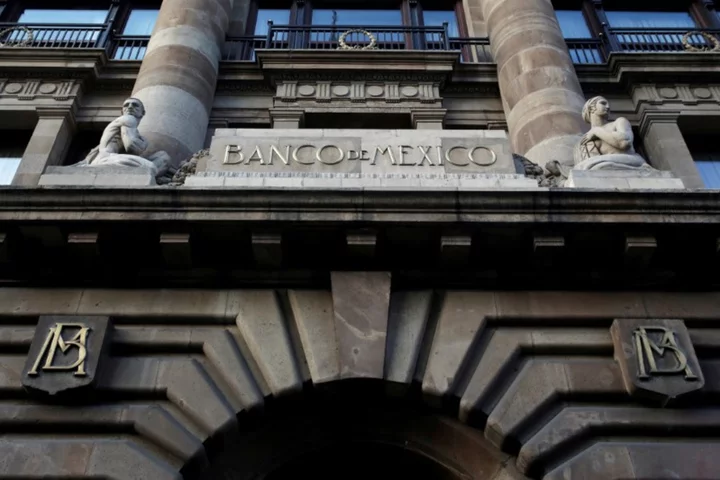By Valentine Hilaire
MEXICO CITY Mexico on Wednesday issued a decree to grant tax breaks for companies that relocate operations to Mexico, targeting major export industries such as carmaking and semiconductors, a move that won cautious praise from economists.
The incentives are designed to attract companies that want to shift their offshore operations closer to their customers, called nearshoring, in the wake of supply chain disruptions in Asia during the COVID pandemic.
Deputy finance minister Gabriel Yorio said in a post on X the incentives would apply to 10 sectors of the economy, including the manufacture of batteries, engines, fertilizers, pharmaceuticals, medical instruments and agribusiness.
President Andres Manuel Lopez Obrador has said Mexico should benefit from moves by industry to reduce dependence on China, but critics argue that his administration has been slow to set out clear-cut incentives to encourage investment.
Though welcomed, the measures failed to dispel concerns the government is obstructing investment by failing to provide essential infrastructure for companies, especially because of its nationalist energy policies favoring fossil fuels.
"These incentives are a good step in efforts to attract companies to the country", said Gabriela Siller, an economist at Banco Base who is often critical of government policy.
But Mexican authorities need to spend more to guarantee power and water supply for industry and provide companies with a stable policy environment to encourage investment, Siller said.
Mexico could lure annual foreign direct investment flows of $55 billion to $60 billion if it takes better advantage of nearshoring, up from $36 billion in 2022, she said.
The new incentives include accelerated investment deductions of 89%-56% in 2023 and 2024, and additional deductions of 25% during three years for worker training, Yorio said.
The top 89% deduction will be available for machinery and equipment intended directly for research into new products or technology development in the country, the decree said.
The automotive, farm and tech sectors are among those set to receive deductions of more than 80%.
Lopez Obrador has prioritized support for Mexico's fossil-fuel dependent and cash-strapped state power companies, feeding concerns about shortages of renewable energy that many major investors need to meet more ambitious climate targets.
That has dampened expectations Mexico could benefit from increased investment in semiconductors in North America.
Mexico's moves to strengthen public sector control of the energy market have sparked trade disputes with Canada and the United States.
Ramse Gutierrez, vice president of investments at asset manager Franklin Templeton Mexico, said the public and private sectors needed to work together to lift the clean energy supply many companies need to win financial backing for projects.
U.S. carmaker Tesla has urged the government of Nuevo Leon state to build vital infrastructure for its planned auto assembly plant in northern Mexico, officials said this month.
Carlos Vejar, a former Mexican trade negotiator, welcomed the government's announcement but urged it to improve infrastructure, security and the facilitation of permits.
Mexico still faces competition to win investment from both North and Central America, plus Colombia, he said.
"I don't think this measure is a game-changer to persuade those who have doubts," said Vejar.
(Reporting by Valentine Hilaire; Additional reporting by Dave Graham; Editing by Anthony Esposito, Grant McCool and Sonali Paul)

